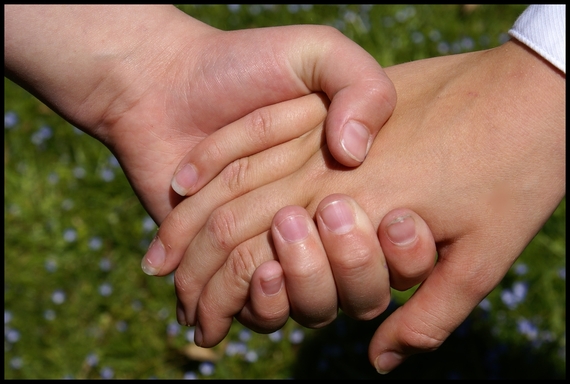One of my favorite movies this summer was Supermensch -- the documentary about talent manager and movie producer Shep Gordon.
In addition to portraying Shep as smart and savvy, the movie shows him to be a kind and beloved friend to a long list of celebrities and dignitaries, from Alice Cooper and Mike Myers to the Dalai Lama.
Yet when Shep Gordon was hospitalized with a life threatening condition, the only one beside him was his paid assistant. He was beloved, and yet he was alone.
Being the Future We Want to See
I'm thinking of this as we are creating the employee benefits policy for our small, start-up organization, Creating the Future. In reaching for what each narrow policy will make possible, it has been energizing and more than a bit revealing to also ask, "What will our employees will need from the organization in order to meet those expectations?"
In that spirit of mutual accountability, we found ourselves crafting a policy none of us had ever encountered in a workplace before.
All staff -- paid and unpaid (volunteers) -- are responsible for taking care of each other.
If we see that someone is getting burned out or overwhelmed or floundering, it is no longer that individual's responsibility to confess that -- an admission of weakness that many people are afraid to make, even if the organization is supportive. Instead, it is the job of the rest of us to recognize if a coworker is struggling. Because in reality, everyone feels like that sometimes -- ourselves included.
From there, according to our new policy, it is our collective responsibility to figure out how to support and bring out the best in that person and the situation. That might mean re-prioritizing, or pitching in, or triaging projects -- whatever it takes to bring out the best in everyone, while reaching for what is possible for the organization's mission.
When U.S. Vice President Joseph Biden talks about the tragic loss of his wife and young child in a car accident, he tells the story of his family stepping in to help him -- not waiting for him to ask, just stepping in. He shares that there is a saying in his family: "If you have to ask, it's too late."
Sometimes we simply need each other. Given the numerous studies over several decades, proving repeatedly that a supportive work environment is good for both the employees and the business, to create policies that ignore our human interdependence seems significantly counterproductive.
* * *
I was deep into work on this project when life shifted gears. I have since spent the past week in a hospital waiting room, holding the hand of my dear friend KC, as she is holding the hand of her critically ill husband.
This couple is well-connected and much loved in our community. One might assume, "They have support around them. I'll send a note and tell them I'm thinking about them."
In fact, KC had been alone. A group of us began taking shifts to sit with her, to help her decipher the doctors who are only giving bad news, and to make sure she is eating. If it weren't for us, just like it was with the overwhelmingly beloved Shep Gordon, she would have been alone this whole time.
Creating a better world doesn't require starting a social change effort or donating lots of money. It simply requires that we be the caring and support we wish were more present in our communities.
Right now in our own lives, we can make that happen by not waiting for someone to ask for help, but stepping in before they have to ask.
Extend that into the workplace, and we will not only be accomplishing something meaningful for our coworkers, we will be demonstrating to others that values like "mutual caring and support" lead to productive, happy people in productive, successful organizations and businesses.
We are all only human. Sometimes, each of us feels alone and overwhelmed. Sometimes in each of our lives, we simply don't have the capacity to be strong. Sometimes we need help.
Whether we take the simple step of showing up at the hospital or looking out for a coworker, or we take the radical step of establishing kindness and caring as a workplace policy -- we can create a more caring future for our world by simply being that right now.
It can start with your company and your organization. It can start with you.
Photo credit: Elizabeth Ann Colette (Flickr) via Wikimedia Commons

